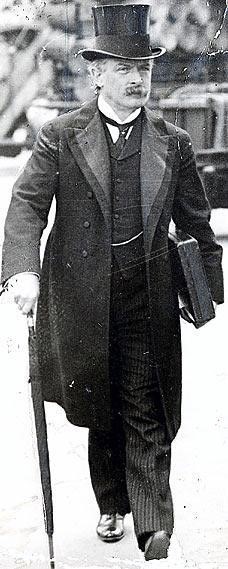THERE IS NO FRIENDSHIP AT THE TOP
Politicians always get misquoted, or, as they usually prefer to put it, ‘get taken out of context’ (translation – “I did say that but I realise now it was a dreadful mistake to say it”. Sometimes they are famously credited with things they did not say at all. Jim Callaghan never uttered the words, “Crisis, what crisis?” when returning to Britain during the Winter of Discontent but that’s what appeared in the press headlines and that’s what has stuck.
According to the Dictionary of Liberal Quotations (edited by Duncan Brack and Robert Ingham and published in 1999 by Politico’s) the words, “There is no friendship at the top” are attributed to Lloyd George, as cited by the historian AJ P Taylor in his 1961 work; Lloyd George, Rise and Fall. This quotation is often used to show that Lloyd George was the consummate politician, red in tooth and claw, someone who knew that only the utterly ruthless get to the top in politics. Many took it to be Lloyd George’s motto in the aftermath of his replacement of Asquith as prime minister in 1916. Well, to use another cliché, ‘if the cap fits’.
Interestingly however, another source (the Oxford Dictionary of National Biography (Oxford University Press, 2004) tells us that the phrase “There are no friendships at the top” (as they have it) was not originated by Lloyd George, although he appropriated it and used it approvingly. According to the DNB, the originator of this piece of cynicism – or should it be realism? – was Stuart Rendel (Liberal MP for Montgomeryshire from 1880-1894). Rendel was a politician with an altogether different reputation than the scheming and manipulative personality in which Lloyd George has often been cloaked. According to his DNB biographer, the late John Grigg, had Rendel been more self-assertive he might have risen higher in politics and he generally seems to have been thought of as reserved, cultured, elegant and diplomatic – not at all like Lloyd George the self-made political street fighter. Rendel was an Englishman, educated at Eton and Oxford. He was an Anglican, although he placed Welsh causes including disestablishment and a distinctively Welsh approach to education and culture, at the heart of his political campaigning and success. As Kenneth O Morgan points out in his book Wales in British Politics (University of Wales Press, Cardiff, 1963) it was Rendel who was the prime mover behind the creation of a distinct Welsh party in Parliament, which acted as a vital pressure group to oblige the government to address Welsh concerns.
Yet, despite the saying he coined, Rendel had extensive political connections and was actually great friends with Grand Old Man, William Ewart Gladstone (one of Rendel’s sons married one of Gladstone’s daughters) as well as with many Welsh politicians including Lloyd George.
So were Rendel and Lloyd George right? Can there be friendships at the very top in politics? Probably not. After all, by definition there can only be one prime minister. Perhaps we should ask Gordon Brown and Tony Blair what they think.
